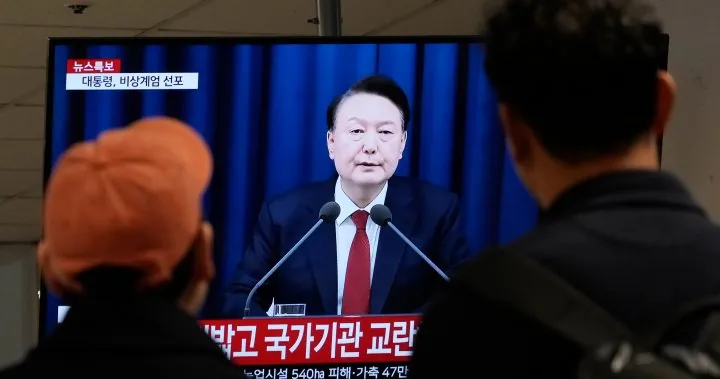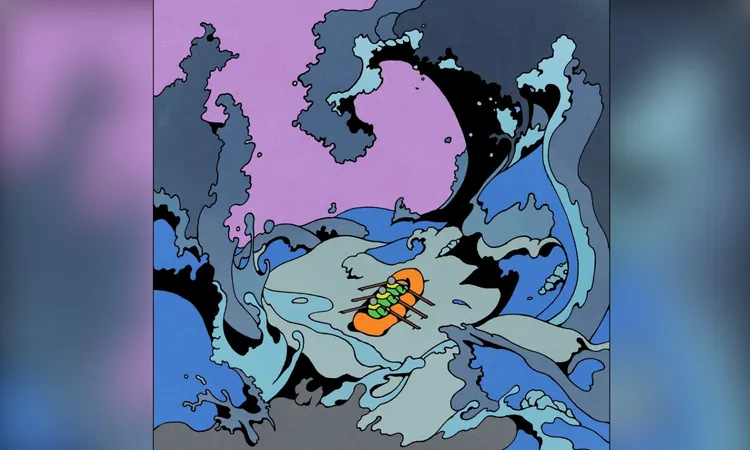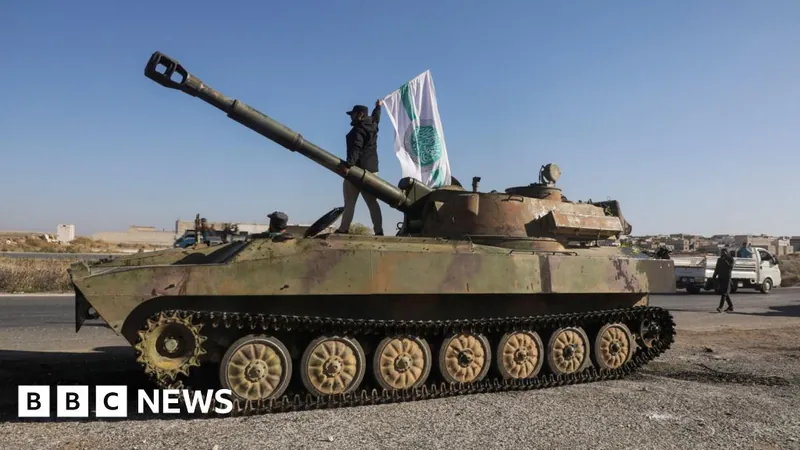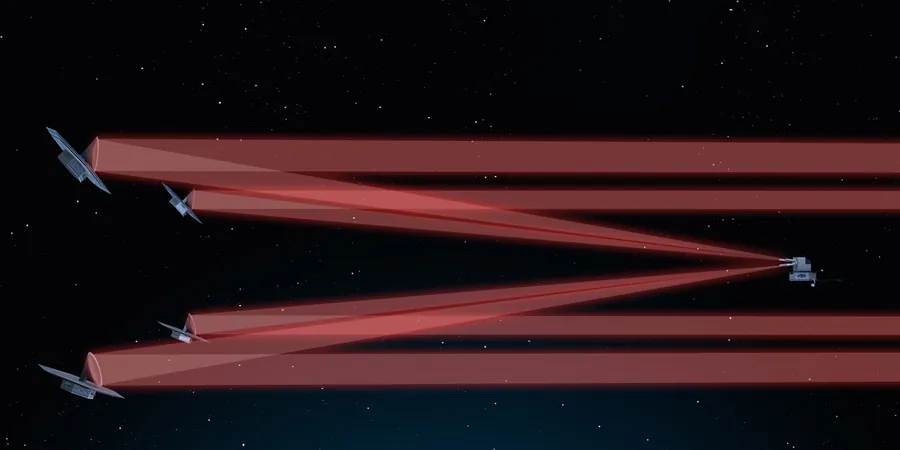
South Korea's Martial Law Crisis: A Democracy Tested and a President Under Fire
2024-12-03
Author: Liam
Martial Law Declared and Quickly Lifted
In a dramatic turn of events, the South Korean government rapidly lifted a martial law order that President Yoon Suk Yeol had proclaimed in a desperate bid to retain control over an increasingly divided political landscape. This declaration, made late Tuesday night, aimed to suppress what Yoon described as 'anti-state forces' among opposition lawmakers amid growing tensions and protests.
Swift Political Response
The martial law was short-lived, lasting just six hours, thanks to swift action from the National Assembly, where a bipartisan vote unanimously rejected the decree at around 10:30 p.m. local time. In an atmosphere charged with anger and disbelief, hundreds of protesters rallied outside the Assembly, demanding Yoon's impeachment. Following the lifting of martial law, scenes of jubilation erupted among demonstrators who chanted, 'We won,' although they continued to express calls for Yoon's removal from office.
Echoes of Authoritarianism
Yoon's controversial decision hearkened back to South Korea's authoritarian past, reminiscent of the oppressive regimes the nation fought hard to escape since democratization in 1987. Observers note that the president's move reflects a frightening regression to autocratic governance in a country striving for democratic integrity.
Political Challenges for Yoon
Additionally, this crisis unfolds against the backdrop of significant political challenges for Yoon, who has faced mounting scandals and legislative obstructions since assuming office in 2022. The conservative People Power Party, to which he belongs, criticized the martial law declaration, further isolating him in an already tumultuous political climate.
Military Measures and Public Reaction
The military had announced sweeping measures under the martial law command, including the temporary suspension of parliament and control over media output, stirring fears of repression reminiscent of pre-democratic rule. In a concerning depiction of state control, police and military personnel were seen restricting access to the National Assembly, with clashes erupting between protesters and troops.
Impeachment Threat Looms
Political analysts believe Yoon's presidency now hangs in the balance. Don Baker, a Korean history professor, pointed out that Yoon's aggressive strategy might be viewed as a significant miscalculation that could catalyze his downfall. Three of South Korea's last four presidents have faced criminal investigations, with two convicted. The looming threat of impeachment is palpable, with opposition voices rallying support to meet the two-thirds legislative threshold necessary for such an action.
International Concerns and Economic Fallout
The international community has reacted with concern over the situation, leading to updated travel advisories from allies such as the United States, Canada, and the United Kingdom, urging caution and suggesting travelers avoid political demonstrations. North Korea's response to this internal turmoil remains closely watched as officials from the isolated regime seize the opportunity to criticize the South's political instability.
Economic Implications
Amidst the turmoil, the nation's economy has also felt the repercussions. After Yoon's declaration, the Korean won experienced a sharp decline against both the U.S. dollar and the Japanese yen, prompting emergency meetings among economic leaders to ensure market stability.
The Path Ahead
As South Korea navigates this unprecedented moment in its democratic journey, the resilience of its populace shines through in demands for accountability and transparency, challenging the future of a president struggling to regain the confidence of both his citizens and political allies. Yoon's ability to weather this crisis and stabilize his presidency remains uncertain, yet it serves as a crucial chapter in South Korea’s ongoing struggle for democratic governance amidst escalating political and social tensions.









 Brasil (PT)
Brasil (PT)
 Canada (EN)
Canada (EN)
 Chile (ES)
Chile (ES)
 España (ES)
España (ES)
 France (FR)
France (FR)
 Hong Kong (EN)
Hong Kong (EN)
 Italia (IT)
Italia (IT)
 日本 (JA)
日本 (JA)
 Magyarország (HU)
Magyarország (HU)
 Norge (NO)
Norge (NO)
 Polska (PL)
Polska (PL)
 Schweiz (DE)
Schweiz (DE)
 Singapore (EN)
Singapore (EN)
 Sverige (SV)
Sverige (SV)
 Suomi (FI)
Suomi (FI)
 Türkiye (TR)
Türkiye (TR)